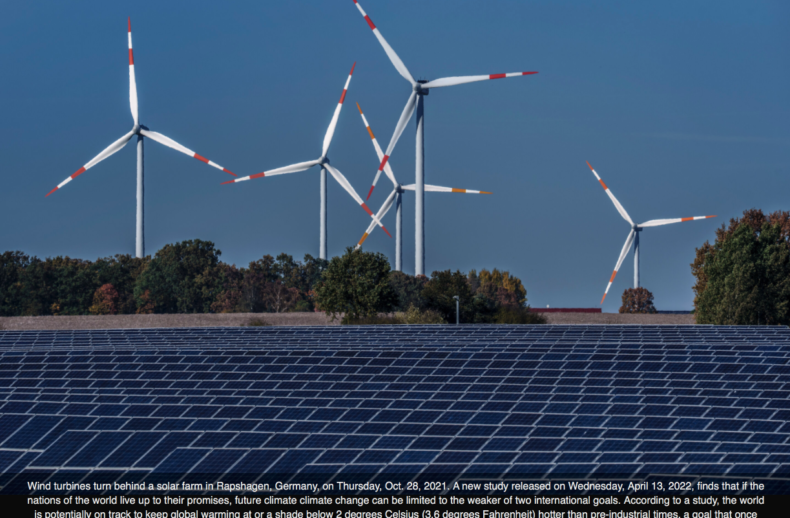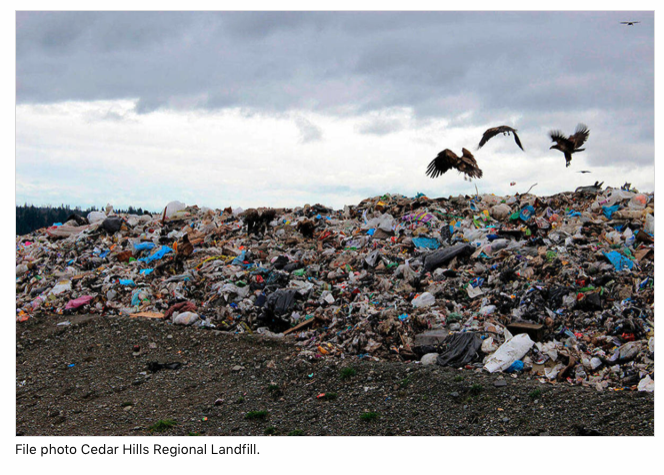If nations do all that they’ve promised to fight climate change, the world can still meet one of two internationally agreed upon goals for limiting warming. But the planet is blowing past the other threshold that scientists say will protect Earth more, a new study finds.
The world is potentially on track to keep global warming at, or a shade below, 2 degrees Celsius (3.6 degrees Fahrenheit) hotter than pre-industrial times, a goal that once seemed out of reach, according to a study published Wednesday in the journal Nature.
That will only happen if countries not only fulfill their specific pledged national targets for curbing carbon emissions by 2030, but also come through on more distant promises of reaching net zero carbon emissions by mid-century, the study says.





